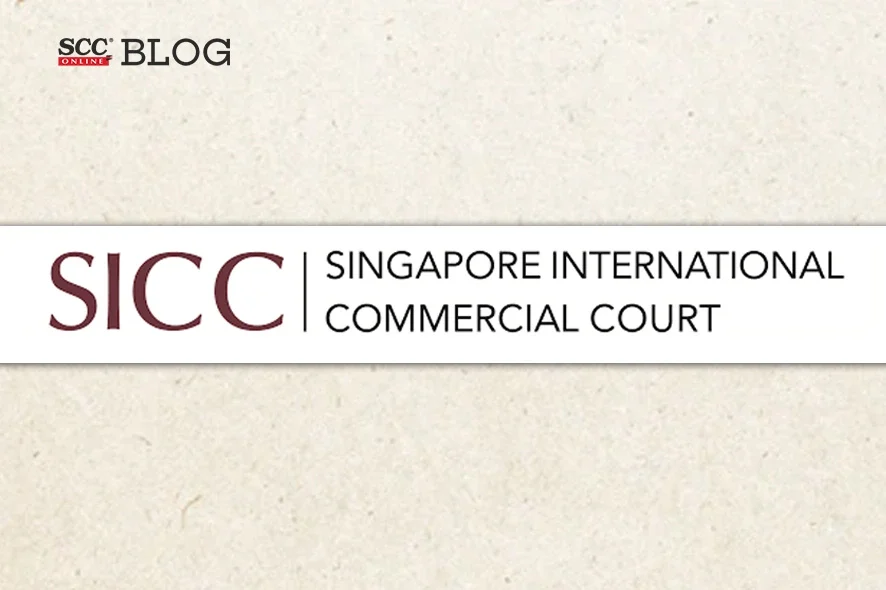Singapore International Commercial Court: Instant case involving application for setting aside the award due to the breach of Natural Justice, a Single Judge Bench of Thomas Bathrust J. held that the applicant failed to show there was denial of reasonable opportunity of hearing and that the material sought to be presented had ‘a real as opposed to the fanciful chance’ of making difference to the decision of the Tribunal.
Background
In the present application, after failing to secure award in its favour, CYW (state-owned entity of Government of Indonesia), filed an application for the alleged breach of Natural Justice under Article 24(b) of Singapore International Arbitration Act, 1994 and for denial of opportunity to present its case under Article 34(2)(a)(ii) of UNICITRAL Model Law on International Commercial Arbitration. CYW contended that the Tribunal’s prohibition to grant extension for submitting expert evidence and translated exhibits, has deprived it of the right of being heard under Article 18 of the Model Law.
Issues
The Court formulated two issues for consideration (i) whether there was a breach of Natural Justice for denying fair opportunity to present the case, (ii) whether the alleged breach of Natural Justice has prejudiced the claim of CYW.
Analysis and Decision
The International Commercial Court in China Machine New Energy Corp v. Jaguar Energy Guatemala LLC, [2020] 1 SLR 695 and of Soh Beng Tee & Co Pte Ltd v. Fairmount Development Pte Ltd [2007] 3 SLR(R) 86, noted that parties right to be heard is impliedly limited by the consideration of reasonableness and fairness. To determine whether there is a breach of such right, the Court should ask whether the actions taken by the Tribunal falls within the range of what a ‘reasonable and fair minded Tribunal’ would do in the ‘given facts and circumstances’. Thus, Tribunal’s decision should be assessed by reference to what was known by the Tribunal at the time of taking decision and, the alleged breach of Natural Justice must be brought to the attention of Tribunal at the appropriate time.
The Court opined that, there is a need to balance due process rights with the Tribunal’s discretion in procedural matters. The Court cannot interfere in the decision of the Tribunal simply because it could have adopted a different course of action.
Further, a causal nexus must be established between the breach of Natural Justice and the award made. An inquiry should be made as to whether the breach was merely technical and inconsequential or whether it has resulted in denial of benefit to the Tribunal to decide on crucial evidences. The Court will determine whether the evidence sought to be presented had ‘a real as opposed to fanciful chance’ of making difference to the decision. If there is no prospect that the material would have made any difference because it lacked any legal and factual weight, then it could not be said that the complainant had suffered real prejudice.
Conclusion
Dismissing the application, the Court opined that, it was reasonable for the Tribunal to take such actions as it made it clear to the parties from the beginning that the hearing dates are firm. The Tribunal provided enough extensions taking in account the counsel’s difficulty in getting instructions from the company which is a state-owned entity and also the constraints due to outbreak of COVID-19 pandemic. Moreover, the order was made in the circumstances of repeated non-compliance with the Tribunal’s direction by CYW. The Court found that the Tribunal gave more than reasonable opportunity to the company to provide expert report and witness statement, however the company failed to comply without citing any coherent reasons. If the conduct of CYW were allowed to continue, the Court held, it would have prejudice the legitimate interest of the other party in prompt determination of the issue.
CYW also alleged that the expert witness on Indonesian law and other legal precedents had a real chance of making substantial difference to decision of the Tribunal, and therefore, denying opportunity to present the same have prejudiced its claim. Rejecting the contention, that Court noted that the relevant materials have already been taken into consideration by the Tribunal and the expert witness is not required because as per the agreement between the parties, the contract was to be governed by the Australian law.
Thus, based on above analysis, the Court refused to set aside the Award.
[CYW v. CYX, [2023] SGHC (I) 10, decided on 31-05-2023]
*Judgement authored by Justice Thomas Bathrust






